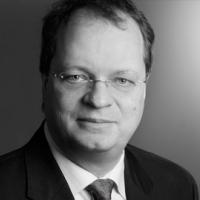Public panel discussion: Climate Change, Human Security, and Conflict in Africa
- Presentation
- Date
-
- Location
- Berlin, Germany
- Panel discussion
A mass of unstable states plagued by many conflicts – this is how Africa is frequently depicted. Climate change is expected to seriously affect many people in Africa, many of whom are poor. Climate change has been linked to both negative effects on human security – a state in which people live free from fear and free from want – and to the rise of violent conflicts. In order to find out to what extent this picture is adequate and to discuss potential policy responses, a public panel discussion titled "Climate change, human security, and conflict in Africa", was organised by Ecologic Institute. A video of the event is available.
Scheduled to coincide with the annual meeting of the EU-funded CLICO project, the event could count with the participation of Dr. Simon Dalby (Carleton University, Canada), a leading expert in the field of security and the environment, and Dr. Yacob Arsano (Addis Abeba University, Ethiopia), a scholar with decade-long involvement in the field of water resources management in Africa. The panel was completed by Eckhard Volkmann (Federal Ministry for Economic Cooperation and Development, Germany), who provided a government perspective on the topic. R. Andreas Kraemer, Director of Ecologic Institute, moderated the event.
One of the discussion's main points was the consequences of the broadening and increased use of the term "security". Speakers agreed that the term could be a good attention-grabber, but the reactions could also be driven by panic and thus unpredictable. Whereas the term's capacity to place the subject of climate change on agendas was seen as productive, the panelists criticised that "security" was a very abstract concept. They suggested that one should talk about real risks instead of vaguely talking about security. “People going hungry should be called people going hungry”, as one panelist commented.
Panelists also discussed how vulnerable so called third-world regions, and particularly Africa, are to climate change. One panelist saw the discourse of climate change and the effects on third-world population as largely exaggerated. "There is lots of high-pitched environmental panic". In contrast, another speaker emphasised that poverty determines possible reactions to global change, and that Africa, due to the comparative poverty and weakness of its institutions, will definitely be hit hard by challenges such as climate change. The importance of local capacity, institutions, and knowledge to face issues derived from environmental change was also highlighted.
Subsequently, the audience discussed the impact of developed countries on development and vulnerability, regarding the effects of its agricultural subsidies and lifestyle for instance. As on speaker commented, current EU-funded projects in Morocco, for example, while helping to increase food security in Europe, mean an increase of vulnerability for the local regions.
The event took place in the Hertie School of Governance, Berlin, on February 17, 2011.
A video of the panel discussion is online.
Further links:
- Official CLICO website
- Ecologic Institute Project: Climate Change, Hydro-conflicts and Human Security (CLICO)
- Dinner Dialogue with Simon Dalby: Environmental Change, Human Insecurity and Earth System Science
- Ecologic Institute Presentation: Do hydro-climatic hazards intensify social tensions and conflicts?
- CLICO meeting in Berlin – discussion on human security



